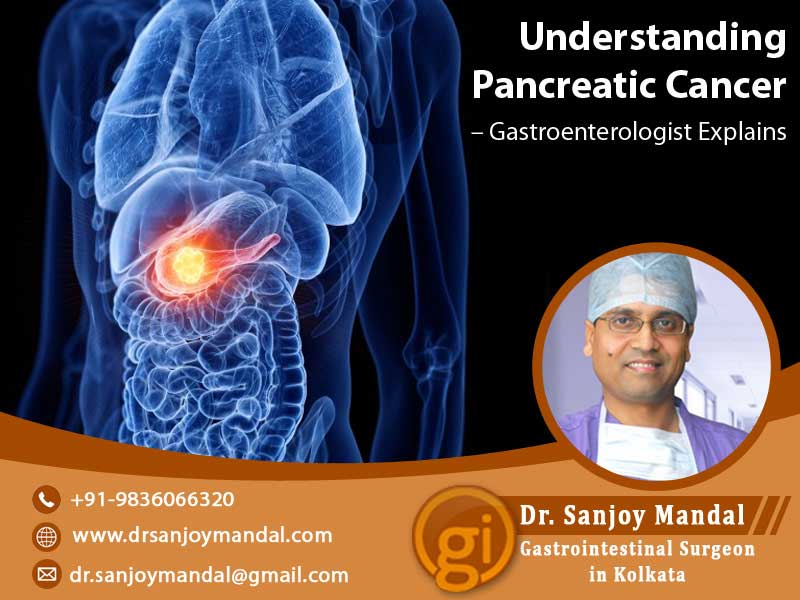Pancreatic cancer is characterized by the irregular growth of malignant cells in the pancreas tissue, which gradually replace all healthy tissues. The pancreas is a glandular organ located in the upper abdomen that produces a variety of digestive enzymes and juices. Pancreatic cancer is a disease that causes extreme abdominal pain and bowel obstruction as it progresses.
It is caused by unfavourable DNA mutations occurring in the pancreas. Pancreatic ductal adenocarcinoma, also known as pancreatic exocrine cancer, is the most common form of pancreatic cancer, and it starts in the cells that line the pancreatic ducts.
If the cancer is not treated, it will spread to other organs, resulting in further complications. Dr Sanjoy Mandal, a renowned onco surgeon in Kolkata, offers the best pancreatic cancer treatment with utmost care.
Common risk factors
While pancreatic cancer is often caused by harmful gene mutations, there are some factors that can make you more vulnerable to it. Some of these risk factors are:
- Pancreatitis
- Diabetes
- Obesity
- Family history of cancer
- Excessive smoking, consumption of alcohol, and substance abuse
- Age (patients older than 55)
- Gender (it is more common in men than women)
Pancreatic cancer symptoms
Common symptoms experienced by patients with pancreatic cancer, as explained by the cancer surgeon in Kolkata, include:
- Loss of appetite
- Persistent abdominal/back pain
- Nausea and vomiting
- Unexplained weight loss
- Yellowing of eyes
- Dark, pungent-smelling urine
- Light stools
- Bowel obstruction
Pancreatic cancer stages
According to the best gallbladder cancer surgeon in Kolkata, there are 4 different stages of pancreatic cancer, including:
- Stage 0: Since the cancer has not yet developed and can only be located in the lining of the pancreatic ducts, the stage is not counted as a cancer.
- Stage I: The presence of a cancerous mass or tumour in the pancreas marks this phase. The tumour starts out tiny, less than 2 cm in diameter, and gradually grows in size.
- Stage II: It is the stage where the cancer has spread to the tissues, lungs, and lymph nodes in the surrounding area.
- Stage III: During this stage, cancer has spread to the main blood vessels.
- Stage IV: Cancer has spread to all major organs, including the lungs, kidneys, and liver.
Treatment of pancreatic cancer
Surgery, chemotherapy, radiation therapy, or their combination can be used in the treatment of cancer. When pancreatic cancer has progressed to the point that these medications are unlikely to help, your gastroenterologist in Kolkata will concentrate on symptom relief (palliative care) in order to keep you as safe and relaxed as possible for as long as possible.
